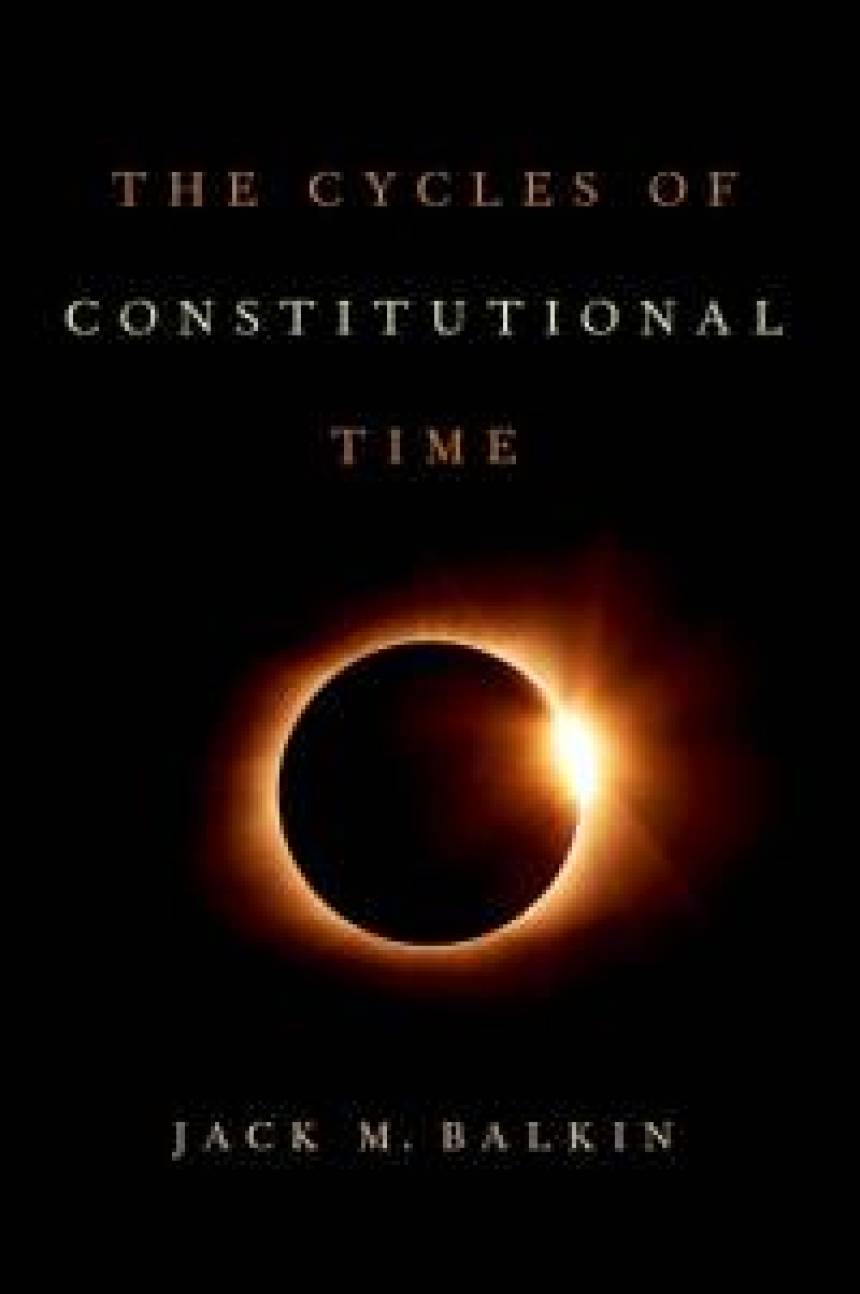A New Hope? An Interdisciplinary Reflection on the Constitution, Politics, and Polarization in Jack Balkin’s "The Cycles of Constitutional Time"
Taking place days after the presidential election, this symposium brings together an extraordinary group of scholars from multiple disciplines to reflect on Professor Jack Balkin’s explanation of our current times and his predictions about where we are headed. The program is a webinar via Zoom, the link is under the Program page.
November 12-13, 2020
Overview
 Our constitutional democracy is ailing. Increasing economic inequality, a lack of trust in our representatives and political processes, and extreme polarization threaten our constitutional order. Will our democracy survive in the coming decades, or are we seeing the beginning of its end, as many despair? In his new remarkable book, The Cycles of Constitutional Time, Yale Law Professor Jack Balkin draws on political science, law, and history to predict the coming decades, offering reasons for hope. He argues that our constitutional system and politics evolve through the interplay of three cycles: the rise and fall of political parties; periods of polarization and depolarization; and a cycle of constitutional rot and renewal. Understanding these cycles can shed light on a path towards redeeming our democracy and constitutional system.
Our constitutional democracy is ailing. Increasing economic inequality, a lack of trust in our representatives and political processes, and extreme polarization threaten our constitutional order. Will our democracy survive in the coming decades, or are we seeing the beginning of its end, as many despair? In his new remarkable book, The Cycles of Constitutional Time, Yale Law Professor Jack Balkin draws on political science, law, and history to predict the coming decades, offering reasons for hope. He argues that our constitutional system and politics evolve through the interplay of three cycles: the rise and fall of political parties; periods of polarization and depolarization; and a cycle of constitutional rot and renewal. Understanding these cycles can shed light on a path towards redeeming our democracy and constitutional system.
Program
The program will be a webinar via Zoom.
| 4:30 pm EST/ 3:30 pm CST |
Welcome remarks |
|---|---|
| 4:45 pm to 6:00 pm EST/ 3:45 pm to 5:00 pm CST |
Panel One: Constitutional Design
|
|
10:00 am to 11:45 am EST/ |
Panel Two: Constitutional History Samuel Moyn, Henry R. Luce Professor of Jurisprudence, Yale Law School, and Professor of History, Yale University |
|---|---|
|
12:00 pm to 1:15 pm EST/ |
Panel Three: Constitutional Politics
|
|
2:00 pm to 3:15 pm EST/ |
Keynote Address and Conclusion Jack Balkin, Knight Professor of Constitutional Law and the First Amendment, Yale Law School |
Videos
Panel One: Constitutional Design
Panel Two: Constitutional History
Panel Three: Constitutional Politics
Keynote: Jack Balkin
Law Review
First published in 1936, the Missouri Law Review is one of the oldest legal publications west of the Mississippi River. The law review is an entirely student-run and student-edited journal published quarterly by the University of Missouri School of Law.
The Missouri Law Review contains three sections: Lead Articles, Comments, and Case Notes, and Law Summaries. Law professors, practicing attorneys, and members of the judiciary write lead articles. Missouri Law Review members write for the comments section, providing an in-depth focus on a particular area of law. Law review associate members write case notes that analyze issues raised by recent court decisions or legislative acts. These members also write law summaries that provide a broad discussion of a statute or legal topic.
The Missouri Law Review publishes one volume per academic year. Each volume consists of the four issues published quarterly in the winter, spring, summer, and fall.